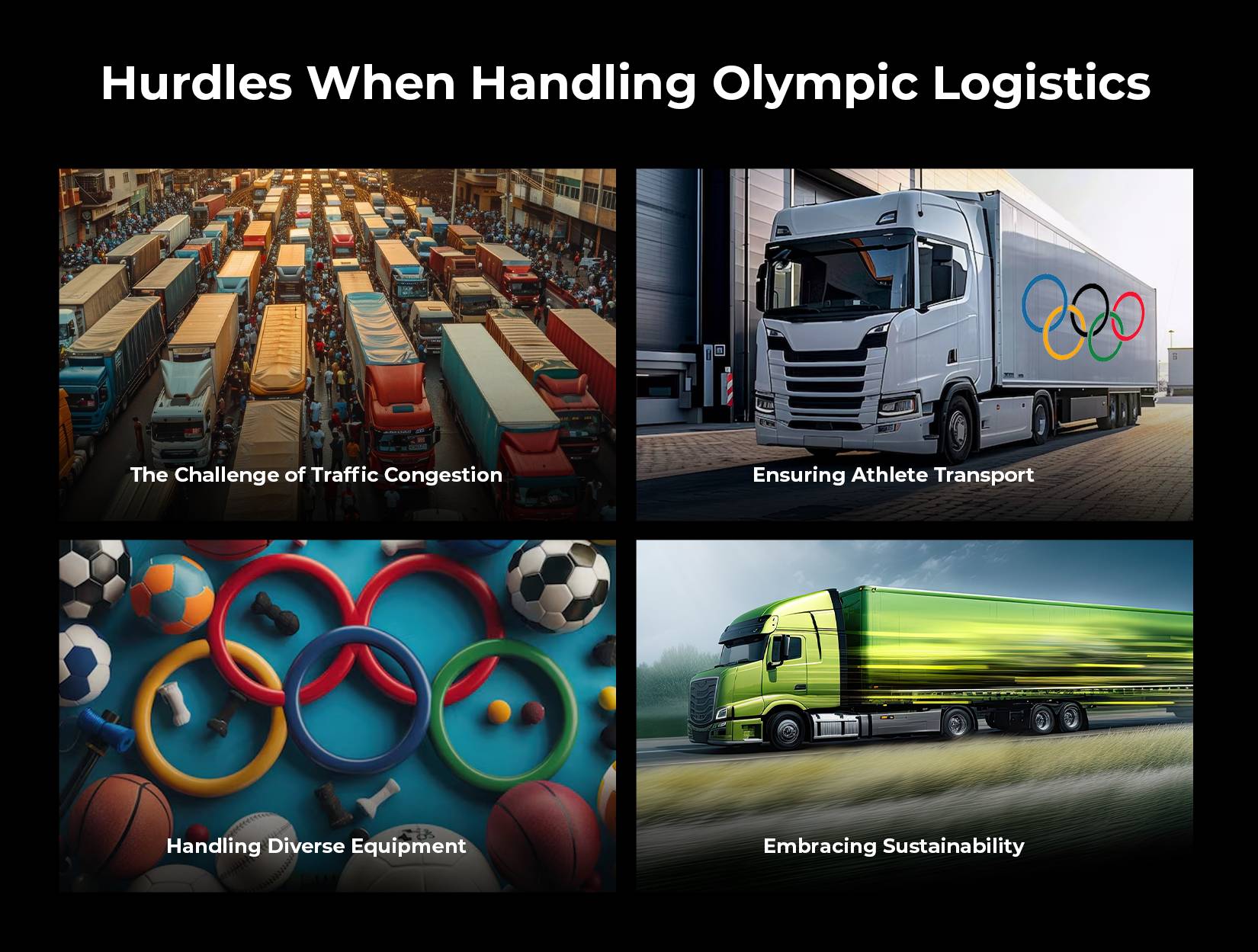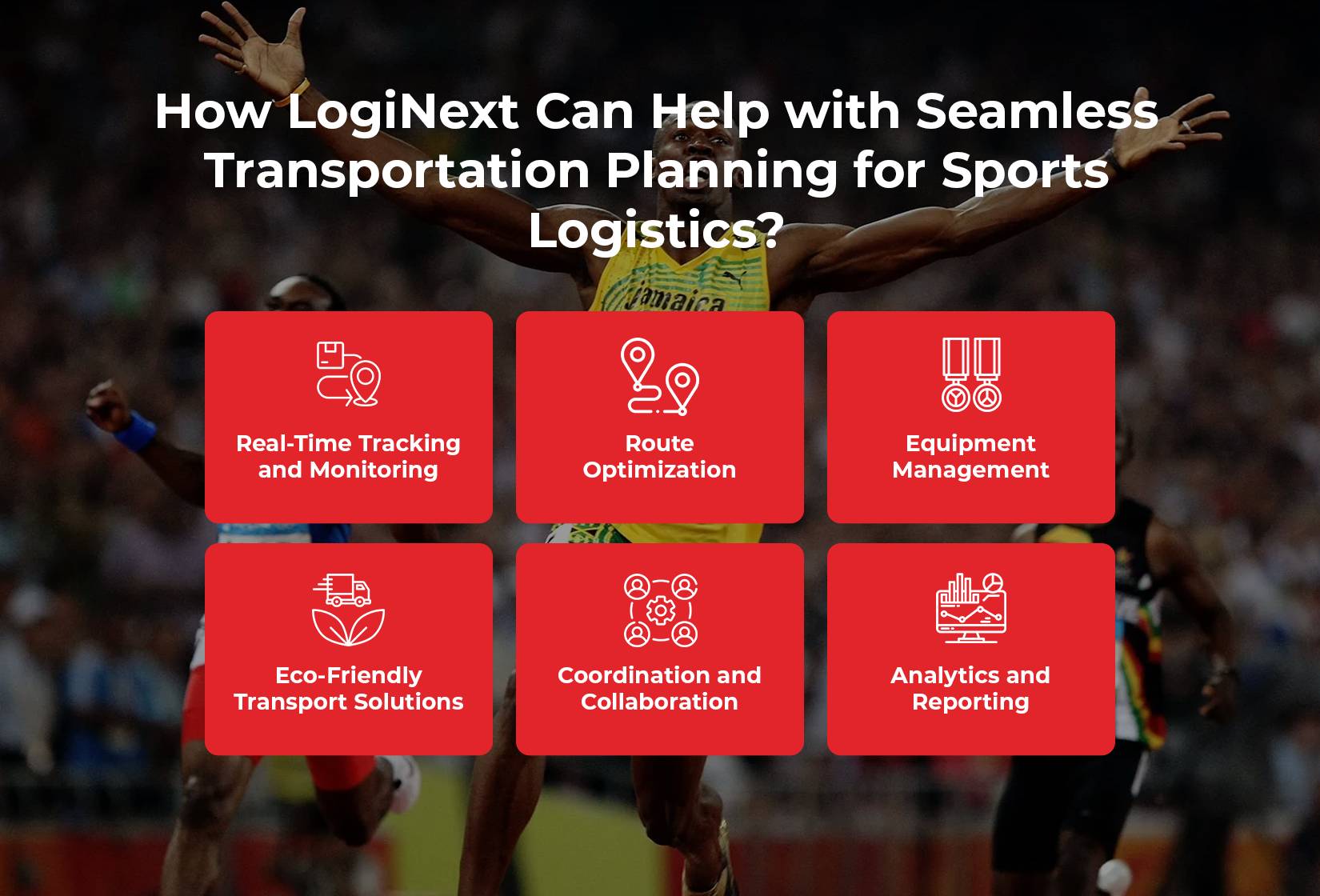The city of Paris is abuzz with excitement as the world gears up for the Paris Olympics. The Eiffel Tower stands tall, draped in Olympic colors, while the Seine sparkles under the festive lights. Banners adorn the streets, and chatter about upcoming events buzzes in the cafes. Anticipation and pride fill the air. But behind the scenes, a monumental task is unfolding – the seamless transportation of athletes, officials, and equipment. Let’s journey through the story of how Paris tackles the challenges of sports logistics.
Quick Read: What’s Transportation Planning? What Goals Can You Achieve?
Setting the Stage for the Paris Olympics
In a quaint Parisian café, Marie, a logistics manager, sips her coffee, pondering the immense task ahead. She knows the stakes are high. Over 10,500 athletes from 206 countries will arrive in Paris, each with unique needs. The city’s narrow streets and bustling traffic add to the complexity. Marie’s mission is clear: ensure every athlete and piece of equipment reaches their destination on time. The Olympic flame is set to ignite in just a few hours, and Marie feels the weight of the world on her shoulders.

The Challenge of Traffic Congestion
Marie recalls the last Olympics, where traffic congestion caused significant delays. Paris, known for its charming yet narrow streets, will face an influx of over 1.5 million visitors daily. The city’s infrastructure will be tested to its limits. Marie and her team devised a plan to create dedicated transport lanes, hoping to alleviate the pressure.
Ensuring Athlete Transport
Marie’s phone buzzes with updates. She sees the names of athletes, their schedules, and transportation needs. A slight delay could affect their performance. She remembers a story from the previous Olympics where a runner missed his event due to traffic. Determined to avoid such incidents, Marie implements a real-time tracking system. Every vehicle transporting athletes is monitored which will ensure timely arrivals.
Stat Alert: During the 2024 Paris Olympics, an estimated 1.5 million visitors will arrive daily.
Handling Diverse Equipment
Next, Marie focuses on equipment logistics. From javelins to bicycles, each piece is crucial. She remembers the frantic calls during the last games when a shipment went missing. This time, she uses an advanced tracking system, monitoring over 300,000 pieces of equipment. Real-time alerts help her team respond quickly to any issues, ensuring every item reaches the right place.
Stat Alert: Over 300,000 pieces of sports equipment will be transported during the Paris Olympics.
Embracing Sustainability
The Paris Olympics aim to be the greenest yet. Marie’s team integrates electric vans and bicycles into the transport fleet. She faces resistance initially, but her persistence pays off. The city plans to deploy over 1,000 electric buses, reducing the carbon footprint and setting a new standard for sustainable sports logistics.
Stat Alert: Paris plans to deploy over 1,000 electric buses for the Olympics.
Marie’s hard work starts to pay off. The first day of the Olympics arrives, and the streets are bustling. Dedicated lanes keep traffic flowing, real-time tracking ensures punctuality, and electric vans glide through the city. Athletes reach their events on time, and equipment arrives safely. The logistics plan works seamlessly, much to Marie’s relief.
Don’t Miss: Role of Transportation Planning in Modern Businesses
How LogiNext Helps with Seamless Transportation Planning for Sports Logistics Events Like the Paris Olympics?
LogiNext is at the forefront of logistics technology, offering advanced solutions that can significantly enhance transportation planning for sports logistics. Here’s how LogiNext can contribute to the success of events like the Paris Olympics.

Real-Time Tracking and Monitoring
LogiNext’s real-time tracking capabilities ensure that all vehicles and equipment are monitored continuously. This allows for quick responses to any delays or issues, ensuring athletes and equipment arrive on time.
Route Optimization
One of the key challenges in sports logistics is navigating through congested areas. LogiNext’s route optimization technology helps identify the fastest and most efficient routes. This reduces travel time and ensures punctuality, which is crucial for event schedules.
Equipment Management
Handling and transporting diverse sports equipment requires precision. LogiNext’s 3D packing solutions ensure every piece of equipment is transported safely and securely. With features like real-time tracking and condition monitoring, any issues can be detected and resolved immediately.
Eco-Friendly Transport Solutions
In line with the Paris Olympics’ sustainability goals, LogiNext offers solutions for integrating electric and eco-friendly vehicles into the transport fleet. This not only reduces the carbon footprint but also aligns with the event’s environmental objectives.
Coordination and Collaboration
Effective coordination between various stakeholders is vital for seamless sports logistics. LogiNext provides platforms that facilitate communication and collaboration between transport authorities, the Olympic committee, and other involved parties. Thus ensuring that everyone is on the same page and any potential issues are addressed promptly.
Analytics and Reporting
LogiNext’s analytics tools provide detailed reports on transport operations. These insights can help identify bottlenecks and improve future planning. By analyzing data from past events, LogiNext helps make informed decisions that enhance efficiency.
Check Out: How AI in Transportation Management Systems Improve Logistics Efficiency
Paris Olympics: Ensuring Efficient Sports Logistics with LogiNext
As the Paris Olympics unfold, the world witnesses a masterclass in sports logistics. LogiNext’s advanced logistics solutions are ideal for handling the complex transportation needs of large-scale events like the Paris Olympics. From real-time tracking to route optimization, equipment management, and eco-friendly transport options, LogiNext ensures seamless transportation planning. By leveraging these technologies, sports logistics can achieve new heights of efficiency and reliability, contributing to the event’s overall success. Schedule a demo by clicking the red button below.
5





















